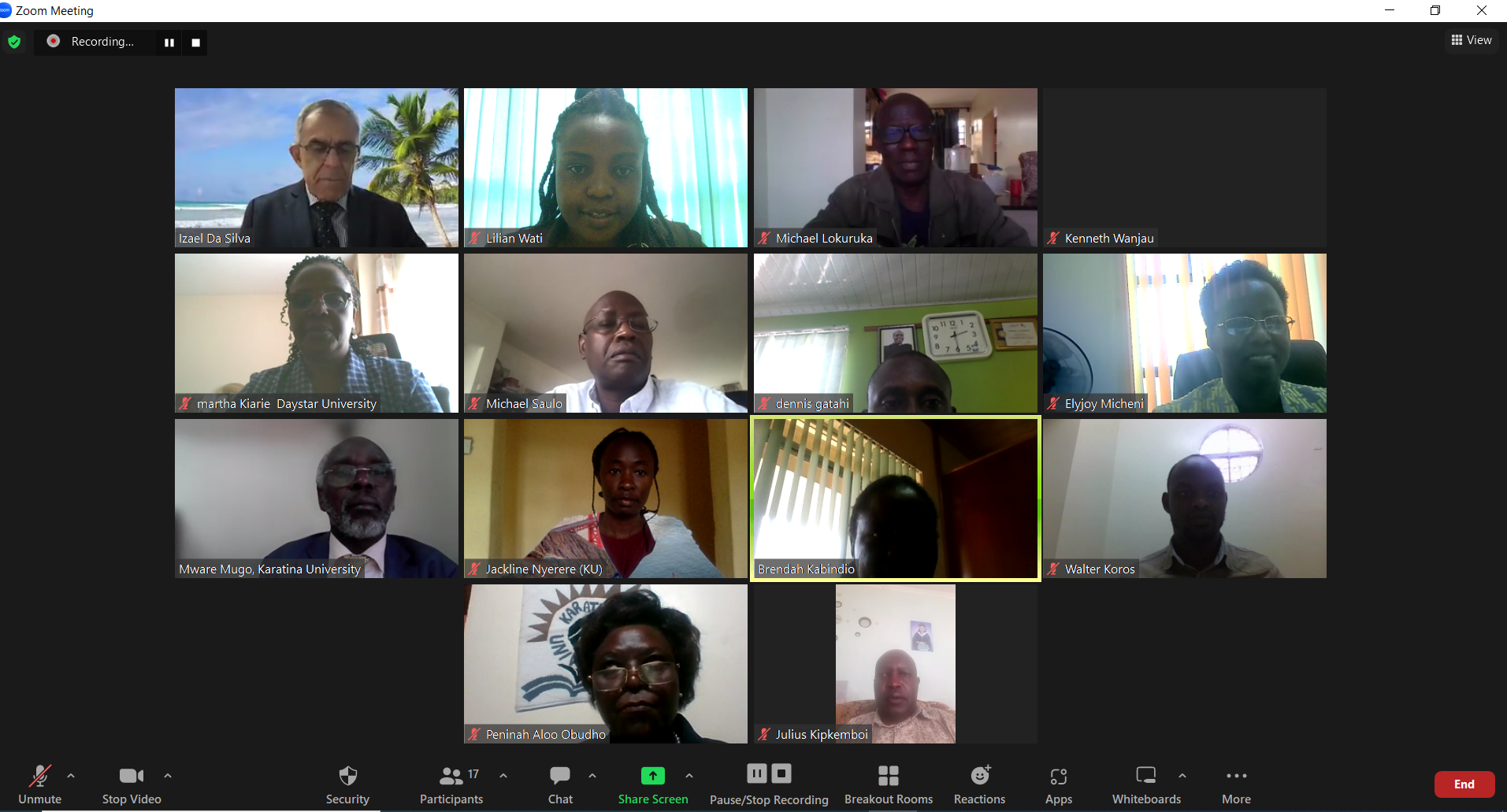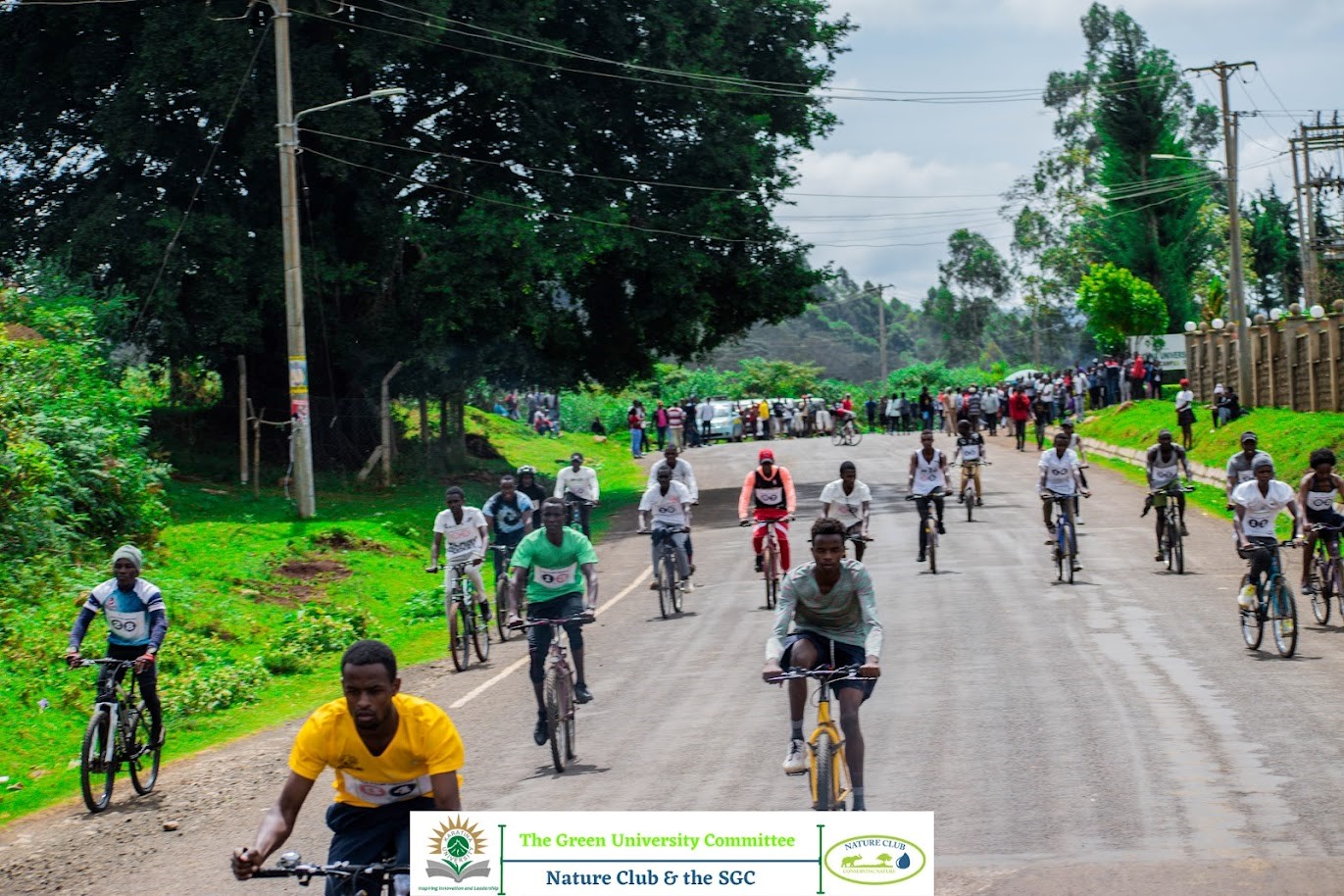On energy saving, Prof. Mware said that the University has strategically placed stickers with energy-saving messages near switches, has a borehole that is fully run by solar energy and provision of waste segregation bins within the University.
Shared Experiences
Each University shared experiences of their greening initiatives. These ranged from setting up a Research Renewable Centre, use of kitchen waste to generate power, adopting e-learning and also administering exams online, automation of services to help reduce the usage of paper, use of alternative bulbs that save energy, installation of solar panels, formation of Green Initiative Hubs/Programmes that bring together environmental clubs, banks, county governments, holding of Green





